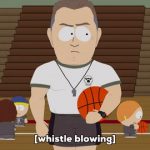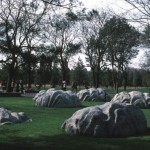
PM Justin Trudeau, to the nation from outside his residence. (Photo from Maclean’s magazine, Canada’s national newser.)
[6- minute read. This is Part 3 the “Silver Linings Playbook” series, looking for Canadian good news amid the Covid-19 crisis. Part 1 is here, Part 2 down there.]
The slowdown that many of the fortunate among us have enjoyed – count me front and centre in that squadron – is not so obvious a benefit when we consider one’s country as a whole. Inevitably, and properly, the cost to the national economy receives scrutiny: how can workers in precarious jobs (or the under-employed) be supported, local businesses be sustained? And then imagine how many times the problems are multiplied in the majority of countries that are, to varying degrees, well behind Canada with respect to economic and social stability, particularly their health care systems, AND are not blessed with Canada’s combination of geographic massiveness and fewer than 40 million folks! And we all know: the pandemic is no picnic here, either, but imagine how awful things have been, or will be, in [insert your favourite fragile state here]!
All that pertains to illness and economic strangulation having been said – and I just read a New York Times piece in which Nicholas Kristof gets inside access at New York hospitals, so I’m not blind to blackened horizons – still, there *are* silver linings, and even in a careful, fearful nation state they’re not hard to find. Here are some of the Canadian beacons amid the gloom:
- UNITED POLITICIANS. Sure, there’s some sniping, but the volume of dissent is much reduced. In our Parliamentary system, in which the elected government is shadowed (or hounded) by “Her Majesty’s Loyal Opposition”, there is audibly less emphasis on opposition than on the preceding adjective. Ontario Premier Doug Ford, an arch-Conservative, has had public praise for Liberal Prime Minister Trudeau and members of his government! (My respect level for Ford is increasing; I might have expected him to be foot-dragging, ignoring scientists and muttering about “getting back to business as usual”, but he’s been a strong, sane and thoughtful voice, from what I’ve heard. He seems to be responding smartly, and with a humane compassion I wasn’t sure he could summon, to the needs of the time, and not holding on to partisan dogma. I’m pleasantly shocked, to be honest.)
- CONFIRMATIONS: We can be oh-so-careful, maddeningly slow and frustratingly divided in our national conversation, but one strong silver lining is the continued reassurance that Canucks are actually reasonably well-governed, and have a clear tendency to often do the right thing, especially when the chips are down.




